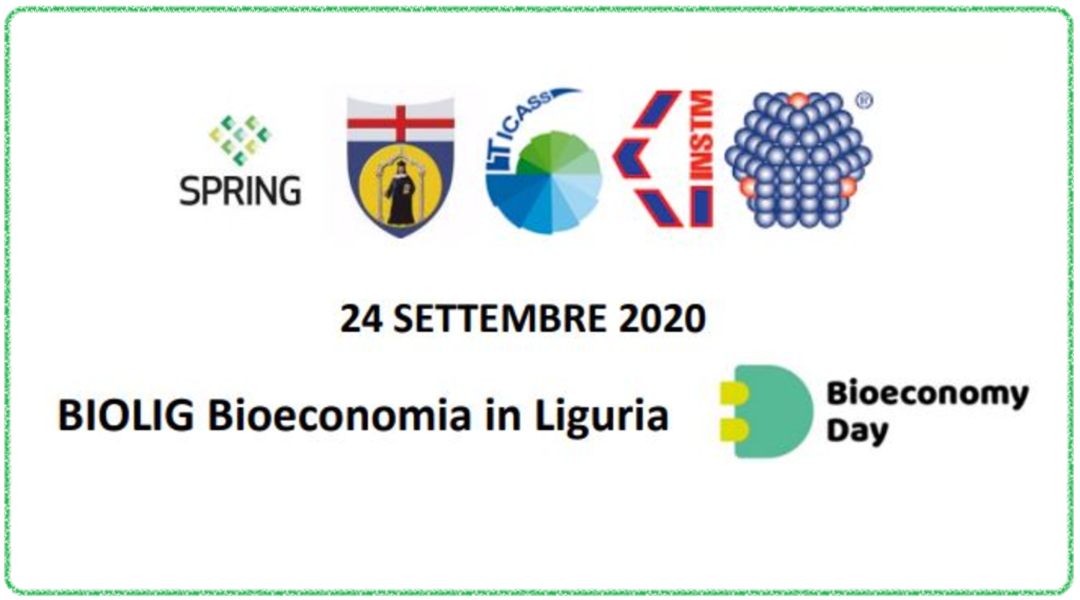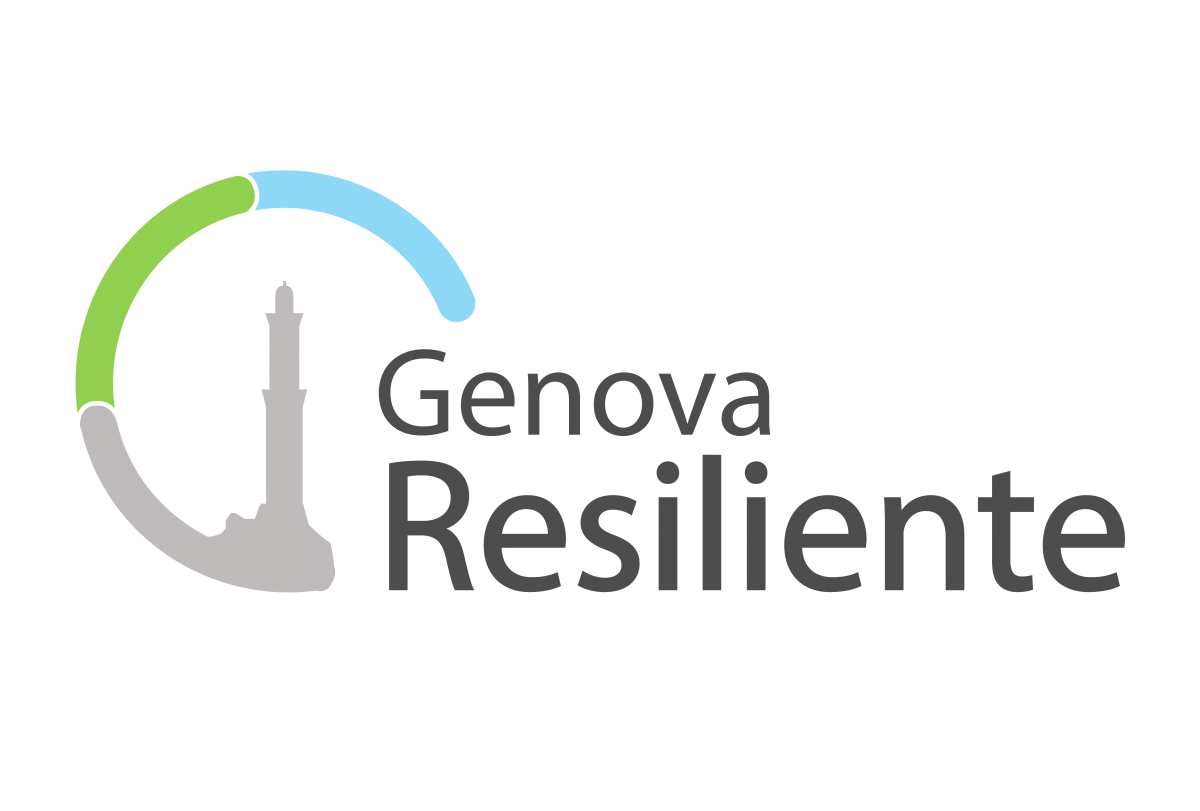BIOECONOMY DAY - LIGURIA 2020
On September 24th, 2020 took place in Italy, strictly online, the Bioeconomy day, entirely dedicated to the Bio and Circular Economy, organized by the National Technological Cluster "SPRING". The Liguria region also participated in this day with BioLig event, organized by TICASS (Innovative Technologies for Environmental Control and Sustainable Development), University of Genoa and INSTM (National Institute for Materials Science and Technology).
After a skilled introduction on the state of the art and the perspectives at European and national level, several European projects of regional significance were presented such as, for example, Bioplastic Europe, a project that deals with the study of the analysis and production of renewables plastics in Europe; Prismamed, related to the reduction of waste and scraps deriving from fishing through the adoption of a governance and integrated management system; FORCE PROJECT, with the aim of minimizing the dispersion of materials from the linear economy and working towards a circular economy. This last point is the cornerstone of the three projects presented during the conference: the Circular Economy for, respectively to the projects, promoting the creation of sustainable plastics through technical innovations, policies and business models; valorise fishing and aquaculture waste and, finally, to promote opportunities and synergies in the bioeconomy sector.
Together with three other European cities, such as Copenhagen, Hamburg and Lisbon, the Municipality of Genoa is actively involved in the FORCE project and is the leader in the wood and wood waste supply chain. The focus of the project is based on the involvement of companies, citizens and the academic world in 16 participatory partnerships based on the value chain to create and develop eco-innovative solutions. Each supply chain presents its own barriers and opportunities, the first to be overcome thanks to the value of the local partnership and of the stakeholders involved. The expected great impact has been to improve the collection systems, re-engineer the supply chains and thus to make an important qualitative leap: working to reach the circular economy 4.0, converting what was the classic concept of recycling into Upcycle and Reuse.
The conference continued with other interventions related to territorial initiatives by AMIU, Spiga Nord (a family company and leader in the enhancement of glycerin deriving from the production of biodiesel or the oil industry) and the Fratelli Parodi group, who presented examples of Bioeconomy applied to the chemical industry and sustainability standards for bio-based products. Other interventions, on the other hand, were conducted by Research institutions such as the Department of Chemistry and Industrial Chemistry of the University of Genoa.
Finally, of fundamental importance was the contribution by Matteo Campora, Assessor for Transport, Integrated Mobility, Environment, Waste, Animals and Energy of the Municipality of Genoa, who, in the context of Regional Development Strategies and Policies, introduced the Resilience theme as a systemic approach to sustainable economic development, the Lighthouse Strategy and the Genoa 2050 Action Plan, with a focus on the PLASTIC4BIO action.
"Resilience" says Campora "has permeated our model of approach to the management of unexpected events, favoring the growth of our capacity to respond to them and allowing us to chart the course for an ambitious goal of sustainable growth in the medium - long term”.
Recently, the Municipality of Genoa approved "GENOVA LIGHTHOUSE - CITTA 'FARO", a strategic vision document of the resilience of the city meant as a smart paradigm of urban transformation that will allow us to be prepared to face the challenges that the great trends of global change (climate, demographic, technological / digital) will reflect at the local level.
Through the actions chosen to implement the strategy and soon available in the Genoa 2050 Action Plan, the city will be able to act proactively, to improve the quality life of people and the urban ecosystem in its governance models, in its capacity for growth and acquisition of new skills without leaving anyone behind, in its transformation into an attractive and innovative territory for local, national and international contexts, with solid opportunities to channel funding to support the planning of activities and actions undertaken.
The Action Plan includes 15 actions aimed at strengthening the urban and peri-urban fabric connected to the three intervention assets identified by the Strategy, namely GRAY dedicated to innovative design and infrastructure optimization, GREEN referred to Urban Regeneration and Sustainable Development and SOFT aimed at communities and companies, with a particular drive to revise local regulations to support the territorial resilience, the experimentation of public-private partnership processes and the combination of funding instruments to encourage the best growth opportunities.
The Deputy Mayor reminded also the importance of reducing "carbon footprint" as a necessary choice also to counter the effects of climate change as well as pollution, in order to gain reputation and attract today's and tomorrow's investors sensitive to sustainable finance that will set the pace in the near future. In this regard, particular space was taken by the PLASTIC4BIO action, proposed as an innovative contribution for the transformation of ordinary production lines, in which is expected the study and local experimentation, in the main logistic district of fruit and vegetable food distribution, of the replacement of some materials of traditional packaging with other compostable products obtained from vegetable fiber waste collected in the same district.
The Bioeconomy day was a great opportunity to make known and deepen - not only to the insiders, but also to interested citizens - the importance that activities and initiatives in these areas will assume in the near future for sustainable growth, especially at the regional level.
Once again it is essential to underline that the issue of waste and its enhancement in a virtuous cycle of circular economy are fundamental for a community and urban context that looks to the future in terms of sustainable development and compliance with international and European orders (Green Deal, Climate Pact and Climate Law, European Plan for the Circular Economy).



Leave a comment